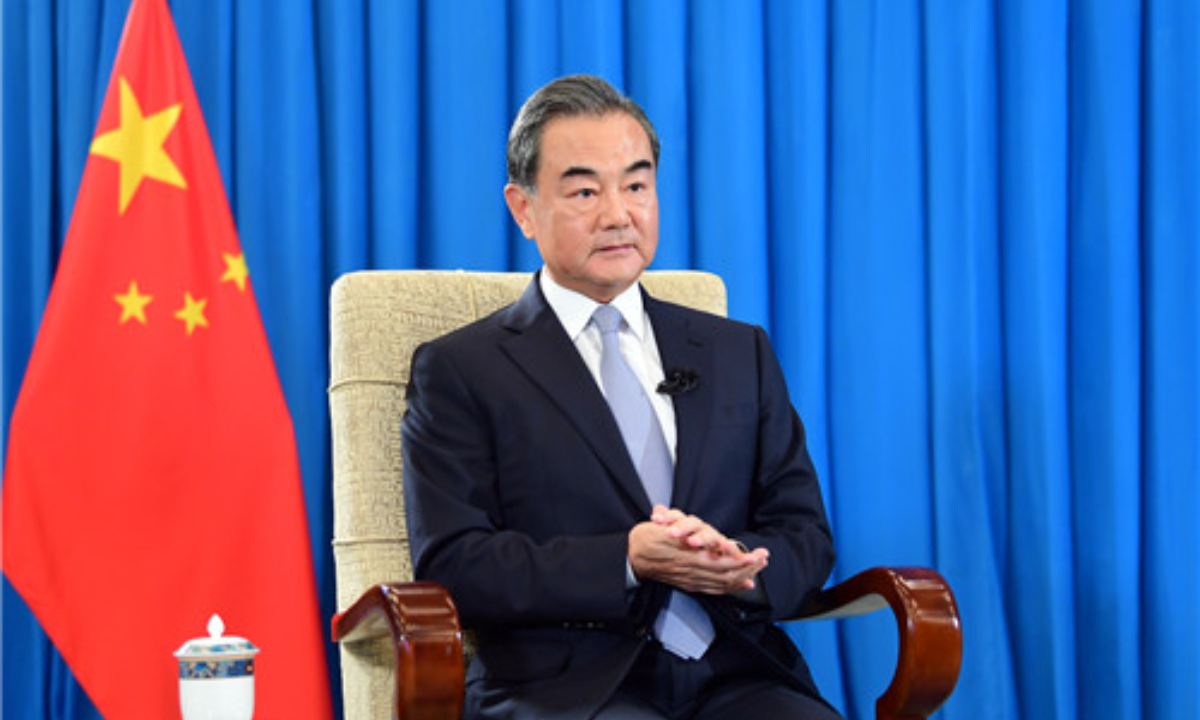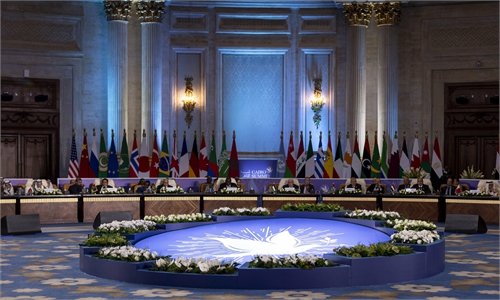Chinese FM's calls with Israel, Palestine officials mark China's consistent, fair stance

Wang Yi
Chinese Foreign Minister Wang Yi had phone calls with foreign ministers of both Israel and Palestine, during which Wang called for preventing the conflict from further escalation and guaranteeing the basic living conditions of the people in Gaza. Experts said the move is more evidence that China's stance toward the conflict has remained consistent and clear, and that it opposes violence, attacks on civilians of any country and encourages peaceful negotiation.
Following Wang's calls on Monday, foreign media began another round of hyping his mention of Israel's right to self-defense, which experts said signals Western countries' intention to draw China deeper into the conflict, as they are envious Beijing's unbiased stance is well received in the Middle East. In contrast with China's impartiality, the US is fanning the flames and laying bare the double standards in regard to the Israel-Palestine conflict.
The current Israel-Palestine conflict affects the whole world and involves a major choice between war and peace, Wang, also a member of the Political Bureau of the Communist Party of China Central Committee, said in a phone conversation with Israel's Foreign Minister Eli Cohen on Monday.
China is deeply concerned about the continued escalation of the conflict and the worsening situation and is deeply saddened by the large number of civilian casualties caused by the conflict, Wang said. China condemns all acts that harm civilians and opposes any violation of international law, Wang said.
All countries have the right to self-defense, but they should respect international humanitarian law and protect the safety of civilians, he added.
Israel's Foreign Minister Eli Cohen introduced Israel's position and security concerns on the Israel-Palestine conflict when he spoke with Wang.
In a separate phone call with Palestinian Foreign Minister Riyad Al-Maliki the same day, Wang said what the people of Gaza need most is security, food and medicine, rather than war, weapons and ammunition. China strongly condemns and opposes all acts that harm civilians and violate the international law, and calls for an immediate cease-fire to stop the war and guarantee the most basic living conditions of the people in Gaza, said Wang.
Jumping on the phone call with Israel's foreign minister, many foreign media, including India's NDTV, began yet another round of hype saying Wang's mention of Israel's right to self-defense marked a shift in China's stance on the conflict.
Zhu Weilie, director of the Middle East Studies Institute at Shanghai International Studies University, denied such speculation. He told the Global Times that China's stance toward the conflict remains consistent and clear, that is it opposes any form of attacks on civilians, as well as unilateral attacks on other countries.
When asked if Wang's remarks can be interpreted as Israel has the right to defend the country from Hamas' attack, Mao Ning, spokesperson of China's Ministry of Foreign Affairs said at a Tuesday briefing that the foreign minister has made it very clear that although all countries have the right to self-defense, they should respect international humanitarian law and protect the safety of civilians.
Mao said that China does not pursue any selfish interests on the Palestinian issue and sincerely hopes that the issue can be comprehensively and fairly resolved on the basis of the two-state solution, so that the legitimate security concerns of all parties can be truly and thoroughly addressed.
In contrast with China's effort to calm down the white-hot crisis, the US, which has the most power to curb Israel's revenge, is fanning the flames by doubling down on its military presence in the Middle East.
In an interview with Bloomberg Television last week, US Ambassador to China Nicholas Burns called on the Chinese government to denounce Hamas, citing Beijing's stance toward the group as yet another challenge in fraught ties between China and the US.
It is the old US tactic of wanting to draw China deeper into the current crisis, partly out of Washington's jealousy over how China's just stance over the Israel-Palestine conflict is well received in the Middle East, at a time when its own Middle East policy has been proved a failure repeatedly and it has become a "persona non grata" in this region, Ding Long, a professor at the Middle East Studies Institute of Shanghai International Studies University, told the Global Times.
"Can the US elaborate on what practical result will be achieved by condemning Hamas? And why is it holding China responsible for the conflict that is partly a result of Western colonization and the US' long-term biased Middle East policy?" asked Ding.
Chinese experts said that the escalation of the Israel-Palestine conflict is also causing a headache for the US and the other Western countries as it lays bare their double standards on civilian casualties.
Protests against Israel and calls for the US to rein in Israel's attacks in the Gaza Strip have created mounting pressure on the Biden administration. The New York Times cited senior officials from the US as saying on Monday that the Biden administration is concerned that Israel lacks achievable military objectives in Gaza, and that the Israel Defense Forces are not yet ready to launch a ground invasion with a plan that can work.
The mounting public opinion is that the US reaps what one has sown, as its double standards have not only been laid bare among the whole world, it is poisoning the already fragmented US society, Ding said.


